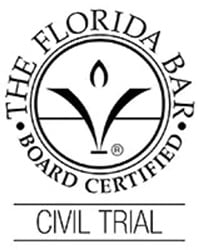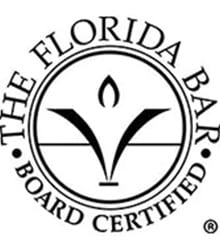Key Takeaways
- Key indicators of medical malpractice include unusual complications, misdiagnosis, surgical errors, medication mistakes, and lack of informed consent.
- Proving medical malpractice in court requires establishing a patient-doctor relationship, demonstrating a breach of standard care, and linking negligence to the patient’s injury.
- Victims of medical malpractice can seek compensation through economic, non-economic, and punitive damages to address their tangible and intangible losses.
Identifying Medical Malpractice: Key Indicators
Medical malpractice refers to various errors and oversights by healthcare providers that can result in significant harm to patients. Common signs include:
- Unusual complications
- Misdiagnosis
- Delayed diagnosis
- Lack of informed consent. These indicators often spell trouble, as they can lead to severe health repercussions and deterioration of the patient’s condition. Medical mistakes can also contribute to these serious issues.
Medical malpractice occurs when accepted medical standards are not met, resulting in patient injury. It can manifest in different forms, including surgical errors, medication mistakes, and substandard care. Understanding these key signs is crucial for anyone suspecting medical malpractice, as early recognition can prompt timely intervention and prevent further harm.

Hurt or Lose a Loved one to Medical Malpractice? Let Us Help You
Hurt or Lose a Loved one to Medical Malpractice? Let Us Help You
Get your FREE & confidential case review todayMisdiagnosis or Delayed Diagnosis
Misdiagnosis or delayed diagnosis is a prevalent form of medical malpractice that can lead to severe complications and worsened patient outcomes. Errors during the diagnosis process, such as misreading X-rays or lab results, can result in inappropriate treatment plans and a progressive decline in the patient’s health. For example, a delayed diagnosis of a blood clot can cause life-threatening conditions such as a stroke or pulmonary embolism.
If you suspect medical malpractice, obtaining a second opinion can clarify the cause of your injury and prevent further complications. Another medical professional may confirm the original diagnosis or suggest alternative treatment options, helping you receive the best possible care and avoid misdiagnosis of the wrong body part during a medical procedure.
Surgical Errors and Complications
Surgical errors are a glaring form of medical malpractice, often leading to severe complications and additional surgeries. Common surgical errors include:
- Operating on the wrong site
- Leaving instruments inside the body
- Anesthesia errors. Medical errors such as these can result in infections, prolonged hospital stays, and even life-threatening conditions. A surgical error can have devastating consequences for patients.
Surgical errors can have serious consequences, including serious injury. Patients may face unexpected complications, such as a severe infection, that necessitate further medical treatment and significantly impact their quality of life. These risks underscore the need to select experienced surgeons and remain vigilant about post-operative care.
 Medication Mistakes
Medication Mistakes
Medication mistakes, such as prescribing the wrong medication, incorrect dosages, or dangerous drug interactions, are another form of medical malpractice.
These errors can lead to adverse health effects, including severe reactions, ineffective treatment, or, in extreme cases, fatalities. The doctor is primarily responsible for prescribing the correct and safe medications and dosage for the patient.
Warning signs of medication errors include receiving the wrong medication, experiencing unexpected side effects, or noticing discrepancies in your medical records.
If you suspect a medication error, address it immediately to prevent further harm and ensure proper treatment.
Lack of Informed Consent
Informed consent is a fundamental patient right, ensuring that individuals are fully aware of the risks, benefits, and alternatives of a treatment before proceeding. When healthcare providers fail to adequately inform patients, it can lead to unforeseen complications and is considered medical malpractice. Even if a consent form is signed, informed consent requires a patient to be truly informed about the associated risks before they can pursue a malpractice claim.
The absence of informed consent can result in patients undergoing procedures without understanding potential consequences, leading to severe health issues and legal disputes. Being fully informed about your treatment options is vital for making the best healthcare decisions to obtain informed consent.
Substandard Care by Healthcare Providers
Substandard care occurs when healthcare providers fail to meet accepted medical standards, causing harm to patients. This can include mismanagement of patient care, ignoring patient history, or failing to order necessary tests. Patients have the right to expect quality care. They should feel free to raise concerns without fearing retaliation.
Substandard care can severely deteriorate health and cause additional medical complications. Failure of healthcare providers to follow established guidelines and protocols within the healthcare system causes unnecessary suffering, emphasizing the need for vigilance and advocacy.
Delayed Treatment and Its Consequences
Early detection is often critical for successful treatment, particularly in serious illnesses like cancer. Delayed treatment can result in severe complications, such as the progression of disease or preventable fatalities. For example, a misdiagnosed blood clot can lead to a fatal stroke or pulmonary embolism.
Delays in ordering necessary tests, improper follow-up, and ignoring patient history are indicators of substandard care. Such lapses can cause a decline in health, stressing the importance of a timely manner and appropriate medical intervention.

Medical Treatment Gone Wrong? Let Us Help You
Medical Treatment Gone Wrong? Let Us Help You
Get your FREE & confidential case review todaySteps to Take if You Suspect Medical Malpractice
Recognizing the signs of medical malpractice is crucial. This can help protect your health and enable you to seek justice. Suspecting malpractice necessitates immediate action. Start by documenting your experience in detail, including symptoms, treatments, and communications with healthcare providers. This documentation is vital for building a strong case.
A second opinion can confirm your suspicions and ensure you receive the right treatment. A medical malpractice attorney can guide you through the legal process and help secure compensation for your suffering if you are a victim of medical malpractice.
Being proactive about your healthcare and trusting your instincts can significantly impact your recovery journey.
Recording these key details can help assess the situation and support your claims.
Request all relevant medical records as soon as you suspect malpractice to ensure you have comprehensive evidence. Thoroughly documenting all medical treatments and communications in chronological order can significantly strengthen your case and facilitate the legal process.
Seeking a Second Opinion
Obtaining a second opinion can be invaluable in suspected medical malpractice cases. It can reveal potential medication mistakes or misdiagnoses, ensuring the right treatment is pursued. If you suspect a medication mistake, document the error and consult a qualified healthcare professional for a second opinion.
A second opinion can confirm suspicions about a diagnosis or treatment plan, offering reassurance or alternative options. It can lead to better health outcomes and prevent further complications from misguided treatments, making it a crucial step in your healthcare journey.
Consulting a Medical Malpractice Attorney
When you suspect malpractice, contacting a medical malpractice attorney is crucial. An attorney can help you understand your legal options and guide you through the claims process. A knowledgeable attorney can increase the likelihood of securing a favorable outcome.
Hiring a qualified personal injury lawyer is advisable for pursuing a case of medical negligence. Early legal guidance helps protect your rights and streamlines the legal process. An attorney can investigate to determine if malpractice occurred and provide support during this challenging time.
Proving Medical Malpractice in Court
Proving medical malpractice requires presenting sufficient evidence that shows negligence directly caused a patient’s injury. Expert testimony typically clarifies the standard of care expected from healthcare providers and explains how the provider deviated from these standards. Choosing a medical malpractice claim attorney with a strong track record can significantly impact the outcome of your case.
Understanding the legal process and the elements needed to prove malpractice is vital for anyone pursuing a claim. Establishing a patient-doctor relationship, demonstrating a breach of standard care, and linking negligence to injury are critical steps in building a solid case.
Establishing a Patient-Doctor Relationship
Proving a formal patient-doctor relationship is essential in medical malpractice cases. This relationship shows that the healthcare provider has a duty of care toward the patient. Evidence must demonstrate that the patient sought care and the healthcare provider accepted them.
The patient must have received medical advice or treatment from the healthcare provider to confirm the relationship. Failure to prove this relationship can undermine a malpractice claim, potentially leaving the patient without legal options.
Demonstrating Breach of Standard of Care
Medical malpractice occurs when a healthcare provider fails to adhere to the accepted standard of care. This failure results in patient harm. The accepted standard of care refers to the care level that a reasonably competent healthcare provider would offer under similar circumstances. Demonstrating that a provider deviated from established medical guidelines is crucial in proving negligence.
Proving negligence requires showing that the provider’s actions significantly deviated from acceptable medical practice, which can be considered a medical negligence case. Expert testimony can be pivotal in explaining these deviations and highlighting the provider’s failure to meet the standard of care.
Linking Negligence to Injury
Establishing a direct connection between the healthcare provider’s negligence and the patient’s injury is essential to support a malpractice claim. It is crucial to show that the negligence or breach of care directly caused the patient’s injury or worsened condition.
Establishing this link is vital for a successful malpractice claim. This involves demonstrating that the harm was a direct consequence of the provider’s actions or inactions, holding them accountable for the injuries.
Compensation for Medical Malpractice Victims
Medical malpractice victims can seek various forms of compensation, including economic, non-economic, and punitive damages. These compensations address both tangible and intangible losses from medical malpractice.
Understanding available compensation types helps medical malpractice victims navigate their claims and seek justice for their suffering.
Economic Damages
Economic damages include quantifiable financial losses such as medical expenses, lost wages, and future medical care costs. These damages typically cover direct financial losses, such as medical expenses, lost income, and future medical care costs.
Claiming economic damages allows victims to recover specific financial losses from medical malpractice, alleviating the financial burden of their injuries.
Non-Economic Damages
Non-economic damages compensate for emotional pain, suffering, and loss of quality of life. These damages address subjective losses, including pain, suffering, and emotional distress caused by malpractice, where individuals have suffered harm.
Non-economic damages account for intangible impacts of medical malpractice, such as loss of enjoyment of life and psychological trauma.
Punitive Damages
Punitive damages are awarded in cases of extreme negligence or willful misconduct by healthcare providers. These damages aim to penalize and deter reckless or intentional behavior.
When a healthcare provider’s actions are extremely reckless or intentionally harmful, punitive damages act as a deterrent against future misconduct and provide additional compensation to the victim.

Hurt or Lose a Loved one to Medical Malpractice? Let Us Help You
Hurt or Lose a Loved one to Medical Malpractice? Let Us Help You
Get your FREE & confidential case review todayChoosing the Right Medical Malpractice Lawyer
Selecting the right medical malpractice lawyer is crucial for successful representation. A solid legal team enhances the likelihood of proving negligence in court, helping victims secure the compensation they deserve.
When evaluating lawyers, consider their experience, track record, and specialization in medical malpractice cases. This ensures you have the best possible representation to navigate the complexities of your claim.
Evaluating Experience and Expertise
Choosing a lawyer specializing in medical malpractice rather than general personal injury law is crucial. Such a lawyer should have substantial knowledge of medical standards, which is essential for effectively arguing your case.
An experienced team that understands the intricacies of medical malpractice cases can significantly influence the outcome, ensuring your well-being is prioritized and your legal rights are upheld.
Understanding Fee Structures
Contingency fee arrangements mean attorneys only get paid if they win your case, alleviating upfront financial pressure. For example, some firms operate on a contingency basis, meaning they only charge fees if they win the case.
Understanding these fee structures helps you make informed decisions about legal representation while also offering a free consultation without immediate financial burdens.
Importance of Client-Lawyer Communication
A compassionate attorney will prioritize understanding the client’s concerns and maintaining transparency throughout the case. Consistent communication throughout the legal process is essential for seeking justice in a medical malpractice case.
Clients should feel comfortable asking their lawyers questions to clarify any uncertainties regarding their case. This openness ensures that both parties are aligned and working toward a common goal.
Frequently Asked Questions
What are the common signs of medical malpractice?
Common signs of medical malpractice include unusual complications, misdiagnosis, delayed diagnosis, surgical errors, medication mistakes, lack of informed consent, and substandard care. If you suspect such issues, it is essential to seek professional legal advice.
How can I prove a medical malpractice case?
To prove a medical malpractice case, you must establish a patient-doctor relationship, demonstrate that the standard of care was breached, and clearly link the physician’s negligence to the injury sustained. This clear connection is crucial to supporting your claim.
What types of compensation can I seek in a medical malpractice case?
In a medical malpractice case, you can seek economic damages for medical expenses and lost wages, non-economic damages for pain and suffering, and punitive damages for severe negligence or willful misconduct. This compensation aims to address both the financial impact and the emotional toll of the malpractice.
Why is it important to seek a second opinion if I suspect medical malpractice?
Seeking a second opinion is crucial as it can validate your concerns regarding a diagnosis or treatment, ultimately ensuring you receive the correct care and mitigating potential complications.
How do contingency fee arrangements work in medical malpractice cases?
Contingency fee arrangements in medical malpractice cases ensure that attorneys receive payment only if they successfully win the case, thereby reducing upfront financial burdens for clients. This structure allows more individuals access to legal representation without the worry of immediate costs.
Related Articles













